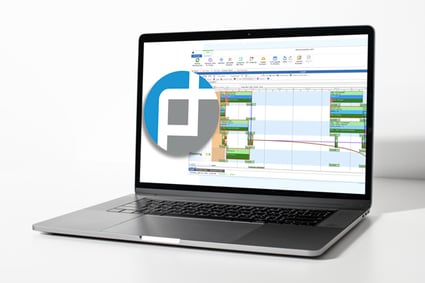Setting Up Effective Feedback Loops in Scheduling
In chemical manufacturing, efficiency and agility in production scheduling are pivotal. Purchasing managers often find themselves at the intersection of supply chain management, procurement, and production. To thrive in this demanding environment, establishing effective feedback loops in scheduling is not just beneficial—it’s essential.
The integration of advanced planning systems like PlanetTogether with enterprise resource planning (ERP) platforms such as SAP, Oracle, Microsoft Dynamics, Kinaxis, or Aveva has revolutionized the way feedback loops can be implemented and utilized. These integrations provide actionable insights, improve responsiveness, and ensure that production schedules are not only realistic but also resilient to disruptions.

Why Feedback Loops Matter in Scheduling
A feedback loop in scheduling involves the continuous exchange of data and insights between production planning, procurement, and other stakeholders. Here’s why they are indispensable in chemical manufacturing:
Real-Time Adjustments: Chemical production often deals with volatile demand, fluctuating raw material availability, and stringent regulatory compliance. Effective feedback loops allow for real-time adjustments to schedules based on evolving conditions.
Enhanced Resource Utilization: With accurate and timely data, scheduling can be optimized to reduce waste and improve the use of raw materials, equipment, and labor.
Improved Supplier Collaboration: Feedback loops foster a seamless exchange of information with suppliers, ensuring that procurement aligns perfectly with production needs.
Risk Mitigation: Early detection of potential issues, such as material shortages or production bottlenecks, enables proactive measures, minimizing disruptions.

Building Effective Feedback Loops
Integration of Systems
The cornerstone of an effective feedback loop is the seamless integration of scheduling tools like PlanetTogether with robust ERP systems such as SAP, Oracle, or Microsoft Dynamics. This integration provides a unified platform for data exchange, ensuring that all stakeholders operate with the same information.
Key Benefits:
Real-time visibility into inventory levels, supplier performance, and production schedules.
Automatic updates of schedules based on changes in procurement timelines or raw material availability.
Improved synchronization between purchasing and production departments.
For instance, when PlanetTogether integrates with SAP, procurement teams can instantly see how delays in raw material delivery might affect production schedules, allowing them to adjust purchase orders or explore alternative suppliers proactively.
Standardized Data Collection
To create a feedback loop that delivers value, it’s crucial to standardize data collection across the organization. This ensures consistency and reliability in the information that drives scheduling decisions.
Steps to Implement:
Define key performance indicators (KPIs) for scheduling, such as order lead times, material availability rates, and schedule adherence.
Use integrated platforms to automate data collection and minimize manual errors.
Train staff to input data uniformly and accurately.
Cross-Functional Collaboration
Effective feedback loops thrive on collaboration. Purchasing managers need to work closely with production planners, logistics teams, and suppliers to ensure that all relevant information flows freely.
Best Practices:
Schedule regular cross-departmental meetings to review schedules and address bottlenecks.
Use collaborative tools like PlanetTogether’s shared dashboards, which integrate with ERP systems, to provide a single source of truth for all stakeholders.
Encourage open communication to identify and resolve issues quickly.
Leveraging Predictive Analytics
Predictive analytics, powered by the integration of PlanetTogether with ERP systems, can enhance feedback loops by providing foresight into potential challenges.
Applications:
Forecasting demand fluctuations and adjusting procurement plans accordingly.
Identifying patterns in supplier delays and mitigating their impact on production schedules.
Optimizing inventory levels to avoid overstocking or stockouts.
For example, a purchasing manager in a chemical manufacturing facility might use predictive analytics to anticipate delays in receiving a key solvent and adjust the production schedule to focus on batches that don’t require it.
Continuous Improvement
Feedback loops are not static—they require ongoing evaluation and refinement. By analyzing performance data, purchasing managers can identify areas for improvement and implement changes to enhance efficiency.
Strategies for Continuous Improvement:
Conduct regular reviews of scheduling performance against KPIs.
Gather feedback from production planners and suppliers to identify pain points.
Invest in training programs to keep staff updated on best practices and new technologies.

PlanetTogether and ERP Integration
Integrating PlanetTogether with ERP systems transforms scheduling from a reactive process to a proactive strategy. Here’s how this integration supports effective feedback loops:
Enhanced Data Visibility With integrated systems, data silos are eliminated. Purchasing managers gain real-time visibility into inventory levels, supplier lead times, and production capacity, enabling more informed decisions.
Automated Workflows Automation reduces the manual effort required to update schedules, freeing up time for strategic planning. For instance, delays in raw material delivery can automatically trigger schedule adjustments, ensuring that production remains on track.
Scenario Planning Advanced planning tools like PlanetTogether allow users to simulate different scenarios, helping purchasing managers evaluate the impact of various decisions on production schedules.
Seamless Communication Integrated platforms streamline communication between departments and with external stakeholders, ensuring that everyone is aligned on scheduling priorities.
Key Takeaways for Purchasing Managers
Setting up effective feedback loops in scheduling requires a combination of robust systems, collaborative practices, and a commitment to continuous improvement. Here are the critical actions to focus on:
Invest in Integration: Ensure that your scheduling tool integrates seamlessly with your ERP system to enable real-time data exchange and automation.
Standardize Processes: Establish clear guidelines for data collection and communication to build a reliable foundation for your feedback loops.
Leverage Technology: Use predictive analytics and scenario planning tools to stay ahead of potential challenges.
Foster Collaboration: Promote open communication and regular interactions between purchasing, production, and suppliers.
Evaluate and Adapt: Continuously review performance metrics and adjust your strategies to drive further improvements.
By embracing these principles and leveraging the integration of tools like PlanetTogether with platforms such as SAP or Microsoft Dynamics, purchasing managers in chemical manufacturing can transform scheduling into a competitive advantage. The result? Improved efficiency, reduced costs, and a more resilient supply chain capable of thriving in an ever-changing industry landscape.
Are you ready to take your manufacturing operations to the next level? Contact us today to learn more about how PlanetTogether can help you achieve your goals and drive success in your industry.
Topics: PlanetTogether Software, Integrating PlanetTogether, Chemical Manufacturing, Cross-Functional Collaboration, Integration of Systems, Standardized Data Collection, Leveraging Predictive Analytics, Improve Responsiveness





















LEAVE A COMMENT